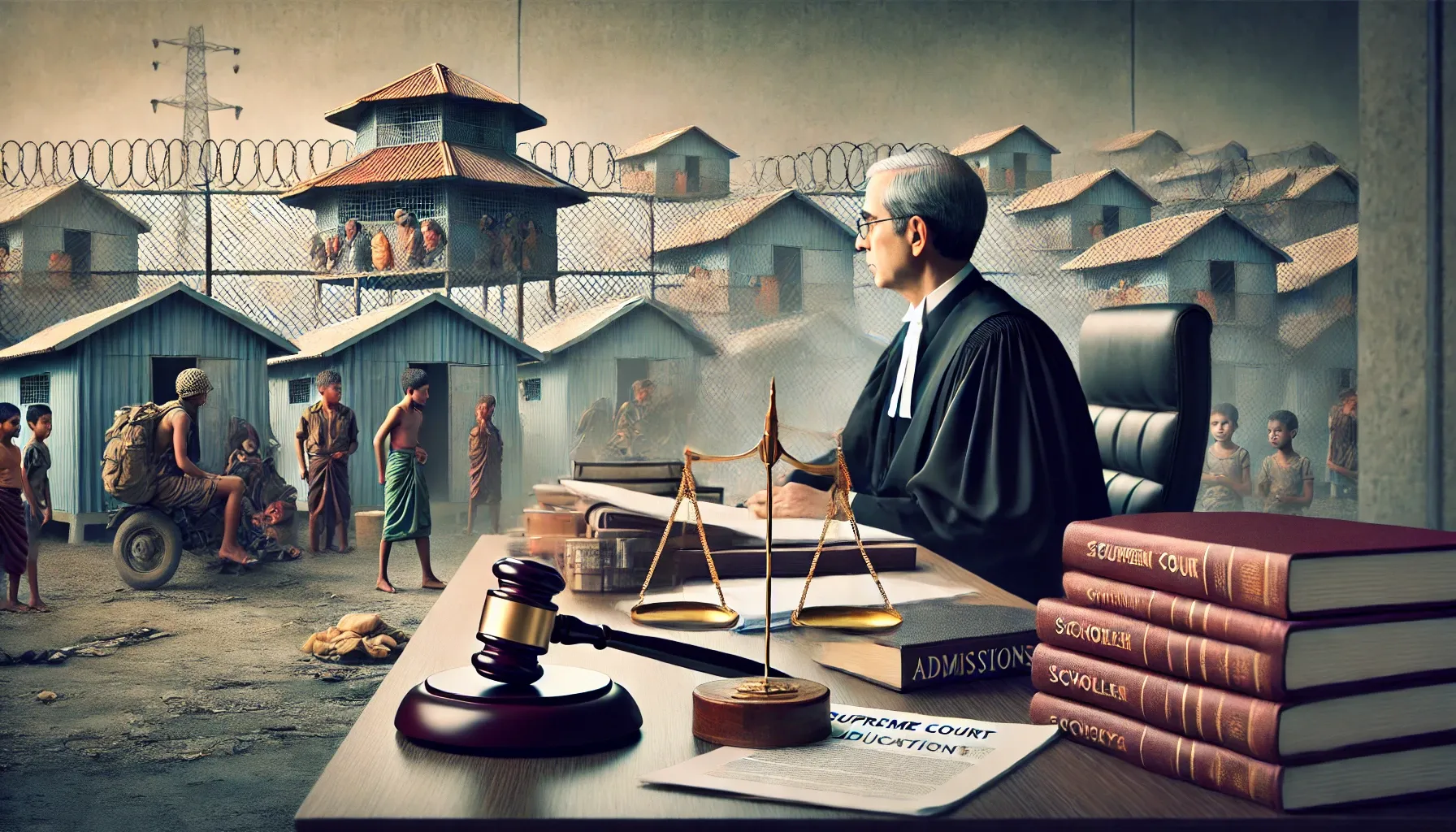The Supreme Court has directed the petitioner to submit an affidavit clarifying the residential status of Rohingya families while hearing a plea for their children's admission in local schools.

The Supreme Court of India, on January 27, 2025, directed the petitioner, an NGO named Social Jurist-A Civil Rights Group, to submit an affidavit clarifying whether Rohingya refugees reside in make-shift camps or regular residential colonies, in connection with a plea seeking the admission of Rohingya refugee children in local schools.
Supreme Court Proceedings
- A bench comprising Justice Surya Kant and Justice N Kotiswar Singh passed the order while hearing the petition.
- The plea challenges the Delhi High Court's dismissal, which had previously ruled that the matter falls within the Centre's jurisdiction.
- The Supreme Court sought details regarding the Rohingya families' living conditions, observing that if they were confined to camps, their movement outside for schooling could involve their guardians accompanying them.
- Justice Kant remarked: "Show us the averment that where are they living...where are their addresses, where are their ration cards...you are asking for directions that they should be admitted in schools...you want to take them out of camps...once they are taken out of the camps, then obviously their guardians will also [follow]..."
- The petitioner's counsel responded that the Rohingya families were living in regular residential colonies, prompting the Court to demand an affidavit confirming this.
Delhi High Court's Previous Decision
- The petitioner had initially approached the Delhi High Court, seeking directives for the Delhi government and the Municipal Corporation of Delhi (MCD) to provide school admissions to Rohingya children near their residences.
- It was argued that the authorities were denying admissions due to the lack of Aadhaar cards.
- The High Court dismissed the petition, directing the petitioner to present their case before the Union Ministry of Home Affairs, stating that the issue involves "security and citizenship ramifications", which fall under the government's policy domain.
- The High Court orally remarked: "Let the government take a call on this, we can't... This is a policy domain, policy decision to be taken by the government. Not for us to take a call... No country in the world will the court decide who is to be given citizenship. What you cannot do directly, you cannot do indirectly. That we cannot allow. And the court should not be a medium in this."
Supreme Court's Consideration
- The Supreme Court indicated that if the Rohingyas were living in regular residential areas, their plea might be considered differently compared to those confined in camps.
- The bench suggested that if the refugees were living in camps, the plea should focus on ensuring education facilities within the camps.
- The Court has listed the matter for further hearing in two weeks, pending the petitioner's submission of the affidavit.
Case Title: SOCIAL JURIST A CIVIL RIGHTS GROUP Versus MUNICIPAL CORPORATION OF DELHI AND ANR., SLP(C) No. 1895/2025





